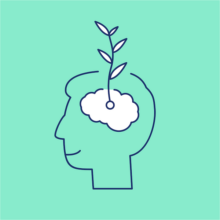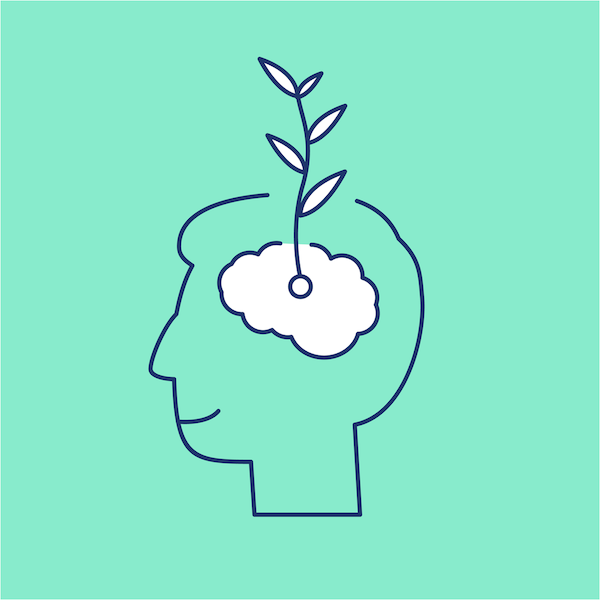A Positive Mindset, Sleep and Intimacy — Prerequisites for Longevity, Part 4

A positive mindset, along with ample restorative sleep and intimacy among your social contacts, is essential for healthy aging. Learn why.

Credit: Minutes.co
Can a positive mindset, sleep and intimacy help you age better? Absolutely — in fact, they’re prerequisites for longevity.
I’ll show you why this is true in a moment, but first some highlights.
Key Points:
This is Part 4 of a four-part series:
- Part 1 is the Four Exercise Prerequisites of Longevity
- Part 2 is How the Mediterranean Diet Beats the Four Horsemen
- Part 3 is The Interplay of Hormones and Detoxification
- Part 4 you’re reading now
This post will examine:
- Mindset: what you need it to be
- The importance of restorative sleep
- Intimacy and social connection
- The interplay of positive mindset, sleep and intimacy
Let’s dig in…
Aging is a complex process influenced by multiple factors, including those beyond traditional genetics and biology. Recent research sheds light on how mindset, sleep, and intimate relationships intricately link with each other, impacting how we age and experience life later in years.
Mindset: What You Need It To Be

Mindset refers to a set of beliefs, attitudes, and assumptions that shape the way we perceive and respond to the world around us. It encompasses the mental frameworks through which we interpret events, make decisions, and navigate life. And this is not a static state of mind; instead, it can evolve and be influenced by the experiences, thoughts, and emotions distilled from our interactions with everything in our world. In many ways our mindset sets the stage for how our lives will unfold, especially as we get older.
Let’s go over how mindset is established, and now we can tweak it so that we can experience our best lives as we age.
How Our Mindset Forms
Formation of Mindset: The development of mindset is deeply rooted in the interplay between thoughts and emotions. Thoughts, which are cognitive processes involving perception, interpretation, and reasoning, are closely intertwined with emotions, which are subjective, often visceral responses to stimuli. Together, they create attitudes – the predispositions that color our perceptions and guide our behaviors.
For example, repeated negative thoughts can lead to the development of a pessimistic attitude, forming a negative mindset. Similarly, positive thoughts and emotions can contribute to an optimistic attitude, shaping a positive mindset. Over time, these attitudes become ingrained and influence how individuals approach challenges, setbacks, and successes.
The Process of Mindset Formation: The process of mindset formation is complex and involves various cognitive and emotional mechanisms. When individuals encounter new information or experiences, their minds interpret and filter these through existing belief systems. Confirmation bias, where people tend to favor information that confirms their pre-existing beliefs, can further strengthen a particular mindset. This can become a very slippery slope, because if your bias is wrong — meaning that it does not conform to reality — you can create a belief system built on a very shaky foundation.
Emotional experiences also play a crucial role in mindset formation. Emotions associated with specific events can create lasting impressions and contribute to the reinforcement or transformation of one’s mindset. Positive emotions can foster resilience, while negative emotions may contribute to a more rigid and pessimistic mindset.
Read my post, How To Rewire Your Brain in 30 Seconds.
Resistance to Change: Changing one’s mindset, especially from a negative to a positive orientation, can be challenging due to the persistence of established thought patterns and emotional responses. The brain tends to favor familiarity, and breaking away from deeply ingrained habits of thinking requires conscious effort and consistent practice. Additionally, fear of the unknown, cognitive dissonance, and societal influences can contribute to resistance against altering one’s mindset.
Read my post, The Genius Of Doing – How To Change When Change Is Hard
Mindset and Aging
More than ever, we need to cultivate a positive, optimistic mindset as we age, and for this the messages you give yourself through self-talk are important to monitor, so you may get a sense about whether they’re self-defeating or uplifting, because thinking positively can help you live longer.
A positive mindset is the cornerstone of anti-aging and aging gracefully. Embrace the belief that life’s most enriching experiences can occur at any age. Shifting your perspective from dreading the passing years to relishing the opportunities they present will transform your outlook on aging.
- Positive outlook: Studies suggest a link between optimism and longer lifespans. A Harvard Health review of studies found that for every 10-point increase in pessimism on the optimism–pessimism test, the mortality rate rose 19%, and that optimists were 55% less likely to die from cardiovascular disease than the pessimists. This may be due to better stress management and healthier lifestyle choices often associated with optimism.
- Growth mindset: Believing abilities can grow (growth mindset) versus being fixed (fixed mindset) is linked to resilience and engagement in healthy behaviors, potentially impacting aging positively. A 2013 study in Geriatric Psychology found a growth mindset reduced stress hormones and chronic inflammation in older adults.
- Purpose and meaning: Having a sense of purpose can motivate healthy habits and increase longevity. A 2015 study led by researchers at Mount Sinai St. Luke’s and Mount Sinai Roosevelt found older adults with a strong sense of purpose had a 23% lower risk of death.
A person’s mindset can significantly impact the experience of aging. A positive mindset in the context of aging involves viewing the aging process as an opportunity for growth, adaptation, and the development of wisdom. Conversely, a negative mindset may contribute to a sense of decline, helplessness, and increased vulnerability to age-related challenges.
Research suggests that individuals with a positive mindset towards aging tend to live longer, experience better physical health, and maintain higher cognitive function compared to those with a more negative mindset. Positive aging mindset is associated with better coping mechanisms, healthier lifestyle choices, and an increased likelihood of engaging in social activities, all of which contribute to a more fulfilling and enjoyable aging experience.
Several studies have found that optimism is associated with a lower risk of heart disease, and people who score highly on tests of optimism live 5 to 15 percent longer than people who are pessimistic. Perhaps this is because optimists tend to have healthier habits and lower rates of some chronic diseases, but even when accounting for those factors, the research shows that people who think positively still live longer.
Read my post Youthful Aging: The Right Mindset and Smart Choices.
A positive mindset can significantly impact the aging process in several ways:
- Improved Mental and Physical Health: Positive thinking can reduce symptoms of depression and anxiety, promoting better mental well-being in seniors. Optimistic seniors tend to engage in healthier lifestyle choices, such as regular exercise and balanced nutrition, leading to improved physical health. A 2019 study published in PNAS showed that optimism is specifically related to 11 to 15% longer life span, on average, and to greater odds of achieving “exceptional longevity” [1].
- Increased Longevity: Studies have shown that positive thinkers may have a longer lifespan compared to those with negative attitudes [1]. A 2019 study found that being optimistic may lead to an 11–15% longer lifespan, independent of socioeconomics, health conditions, and behaviors such as smoking, diet, and alcohol use [2].
- Boosted Resilience: A positive attitude can make individuals more resilient to illness and encourage them to be proactive about taking care of their health [2].
- Reduced Risk of Chronic Diseases: People with more positive attitudes about aging tend to live longer and healthier lives, with a lower risk of conditions such as stroke, cancer, and heart disease [3].
- Enhanced Cognitive Function: Research suggests that mindfulness can help older adults maintain healthy cognition and memory, potentially reducing the risk of age-related cognitive decline [4][5][6].
- Reduced Stress and Anxiety: Mindfulness practices have been shown to lower stress levels and ease symptoms of anxiety, allowing older adults to navigate daily challenges with a greater sense of calm and resilience [5][7]
- Growth mindset: Believing abilities can grow (growth mindset) versus being fixed (fixed mindset) is linked to resilience and engagement in healthy behaviors, potentially impacting aging positively. A 2022 study in Sage Journals found a growth mindset reduced stress hormones in older adults [8].
- Purpose and meaning: Having a sense of purpose can motivate healthy habits and increase longevity. A 2019 study in JAMA Internal Medicine found older adults with a strong sense of purpose had a 2.43 times lower risk of death than those with a weak sense of purpose.
To cultivate a positive mindset as we age, several strategies can be employed, including:
- Surrounding Yourself with Positivity: Encourage yourself to seek out uplifting company. Choosed to associate with people with whom you can navigate the mutual challenges you may face with a resilient attitude and in the absence of loneliness and isolation [9].
- Practicing Gratitude: Reflect on daily blessings and express appreciation for the opportunities and growth that come with aging. This practice can contribute to improved cognitive function and a more positive outlook [9][10].
- Engaging in Physical Activities: Regular exercise can have a positive impact on mental well-being, problem-solving abilities, and cognitive well-being, supporting a more positive perspective on aging [10][11].
- Embracing Self-Acceptance: Celebrating life’s journey and the wisdom gained through experiences can foster self-compassion and acceptance, contributing to a more positive attitude towards aging [10].
- Mindfulness Practices: Incorporating mindfulness techniques such as meditation or deep breathing exercises into daily routines can help seniors stay present and maintain a positive mindset [9].
- Challenging Ageist Stereotypes: Actively challenging negative beliefs about aging, both in oneself and in society, can contribute to a more inclusive and positive perspective on growing older [10].
Aging is a complex process influenced by multiple factors, including those beyond traditional genetics and biology. Recent research sheds light on how mindset, sleep, and intimate relationships intricately link with each other, impacting how we age and experience life later in years.
Read my post, The Longevity Mindset.
The Importance of Restorative Sleep
Sleep is a crucial physiological process that plays a fundamental role in maintaining overall health and well-being. It’s essential for physical restoration, cognitive function, emotional regulation, and overall quality of life.
Optimal sleep is characterized by cycles of different sleep stages, including light sleep, deep sleep, and REM (rapid eye movement) sleep, each serving unique functions. Unfortunately, as we age sleep becomes erratic and interrupted. Let’s find out why sleep is so important, why it gets disrupted as we get older, and what to do about it.
What is Restorative Sleep?
I’ll give you a quick rundown about what constitutes restorative sleep and then get into some details.
Ideal Restorative Sleep
- Duration: Adults generally need 7-9 hours of sleep per night for optimal health.
- Sleep Cycles: A complete sleep cycle lasts about 90-110 minutes and includes stages of light sleep, followed by deep sleep, and REM sleep.
- Light Sleep: Occurs in the initial stages of sleep, promoting relaxation and easing the transition into deeper sleep stages.
- Deep Sleep: Essential for physical restoration, muscle repair, and the release of growth hormones. It is associated with feeling refreshed and energized upon waking.
- REM Sleep: Vital for cognitive function, memory consolidation, and emotional regulation. Dreaming often occurs during REM sleep.
Critical for Brain Function and Physical Recuperation
- Memory Consolidation: Sleep, especially REM sleep, is crucial for consolidating and organizing memories, enhancing learning and problem-solving skills.
- Cognitive Function: Lack of sleep can impair attention, concentration, decision-making, and creativity.
- Physical Restoration: Deep sleep supports physical recovery, including muscle repair, immune system strengthening, and the release of hormones that regulate growth and stress.
Behaviors, Environments, and Situations Affecting Sleep
- Positive Influences:
- Consistent sleep schedule.
- A comfortable and quiet sleep environment.
- Exposure to natural light during the day, which helps regulate the circadian rhythm.
- Relaxing bedtime routines.
- Negative Influences:
- Stimulating activities close to bedtime, such as screen time.
- Irregular sleep patterns.
- Exposure to bright lights, especially blue light, before bedtime.
- Excessive caffeine or alcohol intake.
The sleep cycle consists of two main types: rapid eye movement (REM) sleep and non-REM (NREM) sleep, which is further divided into four stages. These stages cycle through several times over the course of the night. Each stage plays a unique role in contributing to restorative sleep.
Non-REM Sleep
Stage 1: This is the transitional stage between wakefulness and sleep. The mind and body start to slow down, and the brain produces lower-frequency alpha and theta waves. It lasts for 1-7 minutes.
Stage 2: The body enters a more subdued state, including a drop in temperature, relaxed muscles, and slowed breathing and heart rate. Brain waves show a new pattern, and eye movement stops. It lasts for 10-25 minutes.
Stage 3 & 4 (Deep Sleep): These are the most restorative stages, known as deep sleep. In stage 3, very slow brain waves called delta waves are interspersed with smaller, faster waves. By stage 4, the brain almost exclusively produces delta waves. Delta waves promote immune function, help restore the body, repair muscles and tissues, stimulate growth, and boost immune function. About one and a half to two hours of deep sleep are needed each night [11][12].
REM Sleep
During this stage, the eyes move rapidly behind closed lids, and brain waves are similar to those during wakefulness. Breath rate increases, and the body becomes temporarily paralyzed as we dream. REM sleep is essential for learning, memory, and cognition [13].
The different stages of sleep contribute to restorative sleep in various ways. Deep sleep (stages 3 & 4) is crucial for physical restoration, immune function, and growth, while REM sleep is essential for cognitive processes such as learning and memory. The interplay between these stages is vital for overall restorative sleep, ensuring both physical and mental well-being.
Several factors can affect the quality of deep sleep, including:
- Substance Use: Caffeine, benzodiazepines, alcohol, and opioid pain medications can all affect deep sleep [14].
- Sleep Environment: The sleeping environment, including noise, light, and temperature, can impact the quality of deep sleep. A quiet, dark, and comfortable environment is conducive to better sleep [15].
- Sleep Disorders and Pain: Sleep disorders, physical pain, and discomfort can disrupt deep sleep. Addressing sleep disorders and managing physical pain can help improve the quality of deep sleep [16][17].
- Medications and Health Conditions: Certain medications and health conditions can interfere with deep sleep. It’s important to consult a healthcare professional if medication or health issues are affecting sleep quality [16].
- Stress and Aging: Factors such as stress and aging can affect the duration of deep sleep. As people age, they tend to spend less time in deep sleep [18].
Sleep and Aging
Often overlooked, but vitally important, sleep plays a major role in healthy aging. Research has found that the amount of sleep a person averages each night is correlated with their risk of death from any cause, and that consistently getting good quality sleep can add several years to a person’s life.
Importance of Sleep as We Age
As individuals age, there are changes in sleep patterns and structure. Older adults often experience lighter sleep, more awakenings during the night, and a reduced amount of deep sleep. However, the importance of sleep remains critical, as it impacts:
- Cognitive Health: Adequate sleep supports memory, attention, and overall cognitive function. It acts as the brain’s housekeeper, facilitating daily maintenance and repair processes that are crucial for cognitive functioning. Poor sleep can lead to short-term cognitive impairment and long-term cognitive decline [19].
- Physical Health: Healthy sleep is a predictor of better mental well-being, increased ability to perform daily activities, reduced fall risk, better self-reported health status, better physical recovery, better immune function and reduced risk of hospitalization [19].
- Chronic Disease Risk: Disturbed sleep and excessive sleep are associated with inflammation markers such as C-reactive protein, which are linked to chronic conditions like diabetes and cardiovascular disease. Each separate sleep measure—such as duration, quality, and disturbances—is independently associated with a greater risk of Alzheimer’s disease, dementia, or death within four years [20].
- Inflammation: Not sleeping enough is associated with increased inflammation in the body, which may contribute to premature aging. A study found that one night of partial sleep deprivation activated genes related to biological aging in older adults [20].
- Cellular Aging: Research has shown that even a single night of insufficient sleep can lead to quicker aging of cells. This can have implications for the development of age-related diseases such as multiple sclerosis, heart disease, and cancer [21].
- Mitochondrial Function: Prolonged sleep loss and sleep disturbances could play a direct role in the biological aging machinery, impacting mitochondrial metabolism and function, which are critical to sustaining cellular vitality [22].
- Emotional Well-being: Sleep influences mood regulation and emotional resilience.
Common Challenges in Sleep as We Age:
- Insomnia: Difficulty falling asleep or staying asleep.
- Sleep Apnea: Interruptions in breathing during sleep.
- Restless Leg Syndrome: Uncomfortable sensations in the legs leading to an irresistible urge to move them.
- Changes in Circadian Rhythms: Older adults may experience a shift in their natural sleep-wake cycle.
Practices to Improve Sleep in Older Adults:
- Consistent Schedule: Maintain a regular sleep-wake schedule.
- Sleep Environment: Create a comfortable and conducive sleep environment.
- Physical Activity: Engage in regular physical activity, but avoid vigorous exercise close to bedtime.
- Limit Stimulants: Reduce caffeine and nicotine intake, especially in the evening.
- Bedtime Routine: Establish a relaxing bedtime routine to signal the body that it’s time to wind down.
- Limit Naps: If napping, keep it short and avoid napping late in the day.
Intimacy and Social Connection

Psychological health often takes a back seat to physical health, but it can be just as important. For instance, “prolonged isolation and loneliness are equivalent to smoking 15 cigarettes a day”, says the University of New Hampshire [23].
Relationships are key to not only living healthier, but also happier. According to the Harvard Study of Adult Development, strong relationships are the biggest predictor of well-being.
Although close relationships are important for people of every age, they play a crucial role in the well-being of older adults. Research indicates that older adults typically report higher levels of satisfaction with their social relationships than younger adults. Family members are especially important for life satisfaction, providing emotional support that contributes to overall well-being [24].
Older adults’ social networks may be smaller than those of younger adults, but they often include a larger proportion of close partners, such as romantic partners, close friends, and siblings. These close relationships are a vital source of emotional closeness, intimacy, and positive emotions for older adults. Moreover, older adults report more positive emotions with their close partners, greater relationship satisfaction, and more perceived support from their partners compared to younger adults. Interpersonal tensions are reported less frequently, and when they do occur, older adults are less emotionally reactive to such conflict compared to younger adults. Importantly, evidence suggests that older adults retain relationships with their closest, most rewarding social ties [24].
Maintaining healthy relationships and strong social networks as you age can contribute to a longer, healthier life. Positive relationships can be as important to health and well-being as nutrition and physical activity. They can boost happiness, reduce stress, improve confidence, and help cope with traumatic events. Adults with a strong social network have a reduced risk of depression, lower blood pressure, and tend to maintain a healthier body mass index (BMI). Therefore, close relationships are essential for emotional support, positive emotions, and overall well-being in older adults.
What we get, and need, from social intimacy is social connection, emotional support and a sense of belonging:
- Social connection: Strong social ties combat loneliness and isolation, reducing stress and promoting healthy behaviors. A 2010 study in PLOS Medicine found strong social networks were associated with a 50% reduction in dementia risk [25].
- Emotional support: Supportive relationships buffer against stress, reducing its negative impact on health and potentially slowing down aging. A 2015 study in Journals of Gerontology found emotional support from spouses was linked to slower cognitive decline in older adults [26].
- Sense of belonging: Feeling connected to others fosters a sense of purpose and meaning, further impacting well-being and potentially influencing aging.
Now let’s review what you’ve learned so far and connect the dots.
The Interplay of Positive Mindset, Sleep and Intimacy

Let’s now wrap it all together — the nexus between positive mindset, sleep and intimacy. As you’ve discovered, aging is a complex process influenced by multiple factors, including those beyond traditional genetics and biology. Recent research sheds light on how positive mindset, sleep, and intimate relationships intricately link with each other, impacting how we age and experience life later in years.
Let’s summarize what was covered here about positive mindset, sleep and intimacy, and then address their interplay.
The Value of the Right Mindset
- Positive outlook: Studies suggest a link between optimism and longer lifespans. Recall the Harvard Health review of studies that found that for every 10-point increase in pessimism on the optimism–pessimism test, the mortality rate rose 19%, and that optimists were 55% less likely to die from cardiovascular disease than the pessimists.
- Growth mindset: Believing abilities can grow (growth mindset) versus being fixed (fixed mindset) is linked to resilience and engagement in healthy behaviors, potentially impacting aging positively. Recall the 2013 study in Geriatric Psychology that found a growth mindset reduced stress hormones and chronic inflammation in older adults.
- Purpose and meaning: Having a sense of purpose can motivate healthy habits and increase longevity. Recall the 2015 study led by researchers at Mount Sinai St. Luke’s and Mount Sinai Roosevelt that found that older adults with a strong sense of purpose had a 23% lower risk of death.
The Value of Restorative Sleep
- Adequate sleep (7-8 hours): Promotes cellular repair, cognitive function, and immune system strength, all crucial for healthy aging. A 2021 study in Nature Communications linked short sleep to accelerated cognitive decline and higher mortality risk.
- Quality sleep: Deep sleep is essential for brain health and memory consolidation. Sleep disorders like insomnia can disrupt these processes, potentially impacting cognitive aging.
- Stress and sleep: Chronic stress disrupts sleep quality, exacerbating the negative effects of both on aging.
Intimate Relationships
- Social connection: Strong social ties combat loneliness and isolation, reducing stress and promoting healthy behaviors. A 2010 study in PLOS Medicine found strong social networks were associated with a 50% reduction in dementia risk.
- Emotional support: Supportive relationships buffer against stress, reducing its negative impact on health and potentially slowing down aging. A 2017 study in the American Journal of Epidemiology found that for men high positive social support from a spouse/partner was associated with slower cognitive decline, but for woman slower cognitive decline resulted from social support from children, not spouse/partner.
- Sense of belonging: Feeling connected to others fosters a sense of purpose and meaning, further impacting well-being and potentially influencing aging.
The Interplay
Positive mindset, sleep and intimacy are not isolated elements. They interact and influence each other:
- Mindset can impact sleep: Positive thoughts and stress management techniques can improve sleep quality.
- Sleep can affect mindset: Poor sleep can worsen mood and decrease motivation, potentially impacting how we approach challenges.
- Relationships can shape mindset: Supportive connections can foster optimism and purpose, while loneliness can create negativity.
- Mindset can influence relationships: A positive outlook can make individuals more engaging and supportive in relationships.
- Sleep can impact relationships: Poor sleep can affect mood and patience, impacting connection with others.
- Relationships can affect sleep: Stress from strained relationships can disrupt sleep quality.
By understanding these connections, we can create a holistic approach to healthy aging. Cultivating a positive mindset, prioritizing quality sleep, and nurturing strong social connections can empower us to age well, not just chronologically, but also in terms of well-being and our experience of life.
Go to:
Last Updated on February 7, 2024 by Joe Garma



